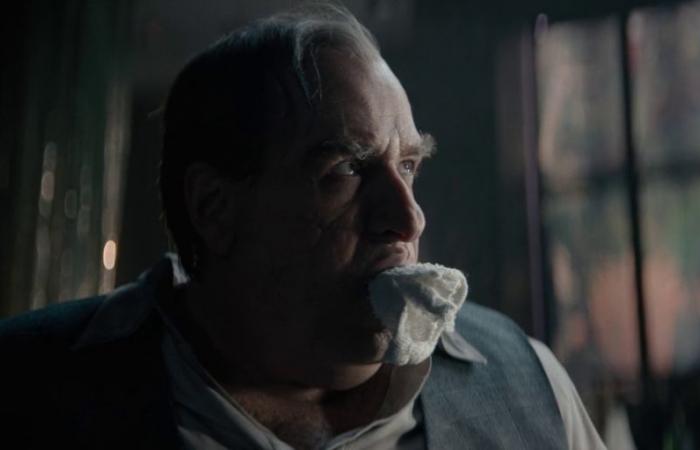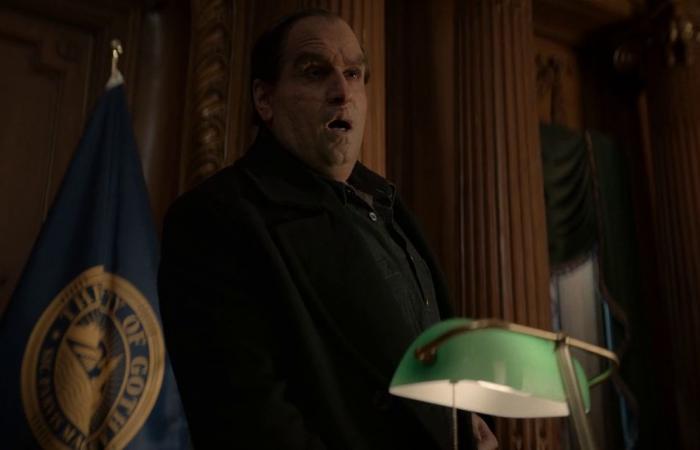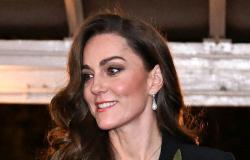The Penguin // Mini-series. Episode 8. A Great or Little Thing.
FINAL EPISODE
The mini-series The Penguin captivated much more than it was expected, especially with this final episode which intensely completes the arc of Sofia Falcone and Oz Cobb. This last episode, entitled “A Great or Little Thing”, brought a tragic and captivating conclusion to the power struggles that marked this dark and complex series. At first glance, it seemed like the series was simply going to exploit the image of Oswald “Oz” Cobb, aka the Penguin, building on the popularity of the character introduced in The Batman. More The Penguin was able to develop something more ambitious, adding layers of nuance and unexpected perspectives on power, family, and the patriarchal society that dominates Gotham. Sofia's journey in this series is one of the most fascinating elements of the story. In this final episode, she reaches a climax by completing her transformation into Sofia Gigante, a figure of power without the slightest hesitation in crushing her enemies.
She perfectly embodies the tragedy of a woman trapped in a society that refuses to grant her real power. Lauren LeFranc's screenplay skillfully uses Sofia to address themes of patriarchy and the limitations that women of power face. Sofia's relationship with her father, Carmine Falcone, molds her in perverse ways, granting her power while condemning her to repeat her mistakes. The final scene where she is sent back to Arkham perfectly embodies this tragic circle: for all her intelligence and ambition, the world of Gotham is not ready for a woman at the top, much less a woman who doesn't obey the rules established. The narration underlines this inevitability through a fable that Sofia tells to Oz and his mother, Frances. It evokes two baby birds and a mother bird, where the weaker ends up eliminating the stronger to attract the favor of the mother.
This story encapsulates her own attempt to eliminate her rivals to assert herself, while giving us a glimpse of a Sofia devastated by the system that refuses to accept her strength. Ultimately, she loses to the patriarchal forces around her, betrayed by the men she thought she controlled. It's a powerful commentary on how difficult it is for women to break the mold, especially in a world as brutal and male-dominated as Gotham. If Sofia is the tragic figure, Oz embodies a dark antihero devoid of any humanity. Where Sofia sought a form of respect and inheritance, Oz only aspires to absolute control. The show's take on Oz, particularly in this final episode, is a fascinating exploration of madness and human cruelty. By reviewing the way he betrays and eliminates his enemies, even his closest allies, we quickly understand that Oz is not a character in search of redemption.
The series does not seek to justify its actions; on the contrary, she exposes her raw monstrosity unvarnished. The flashbacks and scenes with his mother, Frances, add a chilling emotional dimension to his character. Frances is the product of a twisted and manipulative motherly love that ultimately transformed Oz into a lonely figure of hatred and power. The contrast between the toxic relationship with Frances and the way Oz ends up manipulating those around him, like Eve Karlo, shows how he has internalized these destructive dynamics. This latest episode explores this transformation in chilling fashion, showing that Oz is willing to sacrifice everything, including his own humanity, to achieve his goals. What makes The Penguin so fascinating is its ability to distance itself from the traditional codes of superhero series. Unlike most series derived from the DC universe, this one does not rely on action scenes or cameos from known characters.
On the contrary, she takes the time to explore the psychological and societal aspects of her characters. With showrunners like LeFranc and a careful production, The Penguin dares to challenge audience expectations by adding depth to often under-exploited characters. The final scene, in which Oz looks out over the city from his new penthouse, as a controlled version of his mother speaks the words he always wanted to hear, is a brilliant nod to his quest for power. The series highlights Oz's tragedy here: he never really achieves what he wants, because he is trapped by his own traumas. This vision of a soulless rise to power, of a man who lives only to destroy, is the heart of The Penguin. The series invites us to reflect on the very nature of power and the sacrifices it involves, reminding us that behind each conquest lies an insurmountable loneliness.
In conclusion, The Penguin ends on a dark and ambiguous note, showing that the quest for power in Gotham is a never-ending game, marked by violence, betrayal, and delusions of grandeur. Sofia and Oz, two diametrically opposed characters in their quest for control, are ultimately tragic figures, each in their own way. The series does not leave us with a heroic victory, but rather a reflection on the consequences of a devouring ambition. For a series that could have been a simple surface exploration of The Penguin, The Penguin succeeds in capturing the darkness and complexity of Gotham with surprising depth. This last episode, beyond its action, offers a subtle analysis of the characters and their internal struggles, while reminding us that in Gotham, all power has a price.
Note : 8/10. In short, a successful end to the mini-series.
Available on max







